Charlotte’s rental market remains one of the strongest in the Southeast, thanks to rapid population growth, diverse job opportunities, and a vibrant housing demand. But even in a thriving city, landlords face challenges. A sudden vacancy, a major repair, or higher insurance costs can turn steady cash flow into financial stress. Smart budgeting ensures rental properties remain profitable, no matter what surprises arise. For many landlords, consistency starts with improving how rent collection is managed.
Key Takeaways
- Conservative income estimates protect against unexpected financial shortfalls.
- Setting aside 5–10% of rent each month creates a cushion for repairs.
- Upgrades improve property value, reduce vacancies, and attract tenants.
- Deductions such as repairs and depreciation preserve cash at tax time.
- Property managers simplify financial tracking and streamline operations.
Keep Income Projections Realistic
On paper, a property renting for $2,000 per month seems like it will generate $24,000 annually. But the reality is different once you account for vacancies, late payments, and turnover costs. A vacancy buffer of 5–8% offers a more realistic income estimate, bringing the figure closer to $22,000.
Charlotte’s rental market is competitive, particularly in desirable neighborhoods like South End and Plaza Midwood, where rents are higher but turnover can also be frequent. Planning conservatively protects landlords from sudden financial gaps. A realistic budget ensures landlords can cover expenses even if a tenant moves out unexpectedly.
Understand the True Costs of Ownership
Rental income alone doesn’t tell the whole financial story. Property ownership comes with both fixed and variable expenses, many of which fluctuate with market conditions or property age.
Examples of variable costs include:
- Maintenance and repairs: Older Charlotte homes may require more frequent updates, such as roof repairs or HVAC replacements.
- Utilities: Landlords who include utilities in leases need to account for seasonal swings, especially during hot summers.
- Pest control and landscaping: These services protect property value and tenant satisfaction.
- HOA fees: Many Charlotte rental properties are in HOA communities, which come with additional monthly or annual dues.
- Management fees: While some landlords view these as an expense, professional management often saves money in the long run by minimizing vacancies and tenant-related issues.
Factoring in all these costs provides a clearer picture of actual profits rather than inflated projections.
Build a Reserve for Emergencies
Unexpected expenses are part of being a landlord. A broken HVAC system in July, storm damage during hurricane season, or a plumbing issue can quickly consume monthly profits. Without a reserve, landlords are forced to dip into personal funds, which can strain finances.
By saving 5–10% of rental income monthly, landlords create a buffer that turns financial emergencies into manageable inconveniences. In Charlotte’s humid climate, HVAC systems and roofs often require significant upkeep, making reserves even more important. A well-funded reserve not only protects cash flow but also keeps landlords from delaying repairs that could frustrate tenants and increase turnover.
Invest in Upgrades That Generate Returns
Upgrades may seem like expenses, but the right improvements can directly increase rental income. Tenants in Charlotte, especially younger professionals and families, expect modern and energy-efficient homes.
High-return upgrades include:
- Energy-efficient appliances: These lower tenant utility costs and appeal to eco-conscious renters.
- New flooring and fresh paint: They make older homes more attractive while reducing long-term cleaning costs.
- Updated kitchens and bathrooms: These are often deal-makers for prospective tenants willing to pay higher rent.
- Smart technology: Keyless entry systems, video doorbells, and smart thermostats improve security and convenience.
These improvements also support leasing strategies that minimize vacancies, helping landlords secure reliable tenants faster.
Track Finances with the Right Tools
Tracking rental income and expenses on spreadsheets may work for a single property, but mistakes become costly as portfolios grow. Financial tracking systems provide the accuracy and efficiency needed to stay organized.
Benefits of professional tracking systems:
- Monthly income and expense breakdowns that help landlords identify trends.
- Real-time rent collection reports, reducing uncertainty.
- Tax-ready documentation that saves time and money at filing season.
- Comparative performance insights across multiple properties.
PMI Mecklenburg offers landlords in Charlotte advanced reporting systems that provide transparency and simplify financial oversight, making management less stressful.
Plan Your Budget with Taxes in Mind
Taxes are one of the biggest factors in landlord profitability. Landlords who track deductions throughout the year keep more of their income at tax time.
Common deductions include:
- Mortgage interest: Often the largest deductible expense.
- Management fees: Fully deductible, making them a smart investment.
- Repairs and maintenance: Deductible in the same year incurred.
- Travel costs: Trips for inspections, contractor meetings, or tenant issues may qualify.
- Depreciation: Spreads the property’s value over its useful life, lowering taxable income without affecting cash flow.
Charlotte landlords who organize records early avoid scrambling at year-end and benefit more from available deductions.
Expand Without Losing Control
Many landlords in Charlotte eventually expand their portfolios to maximize income, but without careful planning, this growth can lead to financial strain. A per-property budget highlights which rentals are performing best and which may require attention.
Grouping services such as pest control, landscaping, or cleaning across multiple properties reduces expenses. With PMI Mecklenburg managing daily operations, landlords can grow their portfolios while staying financially organized and avoiding burnout.
Budget for Application Fees and Leasing Costs
Many landlords overlook leasing-related expenses when planning budgets. Application processing, background checks, and tenant placement services add up quickly. By understanding typical application fees in Charlotte, landlords can budget more accurately. These upfront costs are essential investments that reduce risks by ensuring tenants are properly screened before moving in.
The Role of Professional Property Management
Even the best budgets can fail if properties aren’t managed efficiently. Professional managers bring consistency to leasing, maintenance, and financial oversight. They also help landlords avoid costly mistakes by ensuring compliance with state and federal regulations, keeping properties attractive, and handling tenant relationships. In Charlotte’s competitive market, professional management often makes the difference between steady profits and financial headaches.
Treat Budgeting as a Long-Term System
Budgeting isn’t a once-a-year task—it’s a continuous process that adapts to changing expenses, rental rates, and market conditions. Charlotte’s growth means property values and operating costs are always evolving. Landlords who review and adjust budgets regularly are better equipped to thrive in this dynamic market.
Build Financial Stability with PMI Mecklenburg
PMI Mecklenburg helps Charlotte landlords simplify budgeting, protect cash flow, and strengthen rental portfolios. With expert support, you can navigate expenses confidently and maximize returns. If you’re ready to take your rental business to the next level, connect with PMI Mecklenburg today for personalized solutions designed to keep your properties profitable.
FAQs
How much do property management fees usually cost in Charlotte?
Management fees in Charlotte typically range from 8–12% of monthly rent. These fees often include tenant placement, rent collection, and maintenance oversight. While they reduce monthly income slightly, they usually increase overall profitability by minimizing vacancies and tenant-related risks.
What are property tax rates like in Charlotte, NC?
Property taxes in Charlotte are moderate compared to national averages. The exact rate depends on county assessments, but budgeting for them ensures landlords are not surprised by annual bills that may otherwise impact profitability.
How much should landlords save for maintenance annually?
A common recommendation is to set aside 1% of the property’s value each year. For example, if a property is valued at $300,000, landlords should save about $3,000 annually. Older homes may require a larger reserve for aging systems.
Which upgrades bring the highest returns in Charlotte?
Kitchens, bathrooms, and flooring upgrades provide the best returns, as tenants prioritize these areas when choosing rentals. Curb appeal enhancements like landscaping and updated exteriors also help properties rent faster.
Why are vacancies such a concern for landlords?
Vacancies result in immediate income loss. Even a short vacancy can erase months of profitability. Budgeting for a 5–8% vacancy rate and applying strong leasing strategies helps Charlotte landlords minimize downtime and secure consistent cash flow.


